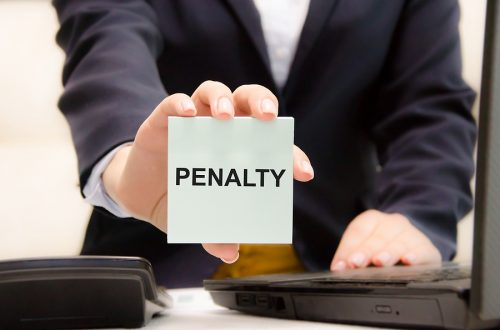At some point, consumer debt is so old that it is no longer legally collectible. At this point, the debt is said to be past the statute of limitations, meaning no creditor or debt collector can take the consumer to court to collect on the debt. However, even though creditors cannot collect on debt past a certain time period, it does not mean this is the best strategy for consumers to seek in cancellation of this debt.
Every state has a set of laws that govern how long a party has to pursue a legal cause of action. After the timeline has passed, the individual can no longer file a lawsuit. For debt collection, the statute of limitation hinges on the type of debt. In Florida, the statute of limitations for debts involving written contracts, such as personal loans, is five years. The statute of limitations is four years for debts that stem from oral contracts or revolving accounts, the most common of these being credit card debt. After that point, the creditor is not able to legally collect on the debt.
Regardless of this fact, it is not recommended that consumers utilize the statute of limitations strategy in hopes that the debt will simply disappear. Having an outstanding debt on a consumer’s credit report will cause significant damage to his or her credit score. While the debt may no longer be collectible after a certain length of time, it may not be worth it in the end with how much damage will occur to the person’s credit.
Generally speaking, outstanding debt will stay on a consumer’s credit score for up to seven years. If the consumer wants to be approved for financing in the future, this blemish on his or her credit report will end up preventing that approval from ever being given.
The statute of limitations passing will also not mean that creditors will stop calling the consumer to collect on the debt. In fact, the calls and constant communication will likely continue. Most debt collectors will persist in collecting on the debt even if they are not able to sue to collect on it. Many times, the original creditor will sell the old debt to a third-party agency who will work hard to trick the consumer into making a payment and resetting the clock for the statute of limitations.
Other options the consumer may have to get rid of the debt and mitigate any potential damage to his or her credit score is to reach out and work with the creditor or debt collector on a partial payment to pay off the debt, even if it is past the statute of limitations. Keep in mind that making any payment does “reset” the clock, which is why it is recommended that if this payment is meant to settle the debt in full, this agreement be memorialized in writing. Be sure to request that when the payment is made, the creditor has it removed from the consumer’s credit report.
If the creditor or debt collector is not willing to work with the consumer on a partial payment to pay off the debt, but the consumer needs the collection taken off his or her credit report, it may be advisable to pay the amount off in full, if at all possible, even if it is past the statute of limitations. Again, be sure to get this agreement and payment in writing so that the person’s credit report can reflect this fact.
It is important that the consumer is aware of his or her rights when it comes to any time-barred debt. If the debt collector sues the consumer on the debt, but it is past the statute of limitations, be sure to contact an attorney and respond to the suit appropriately. Even if the debt is past the statute of limitations, ignoring it does not mean the court will recognize this fact. Always respond to legal complaints to avoid being on the receiving end of a default judgment.
It may be advisable to speak with a consumer bankruptcy attorney to discuss what rights the consumer owing the debt has and what strategies may be best for handling this debt.
Please click here to read more.
If you have questions on this topic or are in financial crisis and considering filing for bankruptcy, contact an experienced Miami bankruptcy attorney who can advise you of all of your options. As an experienced CPA as well as a proven bankruptcy lawyer, Timothy Kingcade knows how to help clients take full advantage of the bankruptcy laws to protect their assets and get successful results. Since 1996 Kingcade Garcia McMaken has been helping people from all walks of life build a better tomorrow. Our attorneys’ help thousands of people every year take advantage of their rights under bankruptcy protection to restart, rebuild and recover. The day you hire our firm, we will contact your creditors to stop the harassment. You can also find useful consumer information on the Kingcade Garcia McMaken website at www.miamibankruptcy.com.



